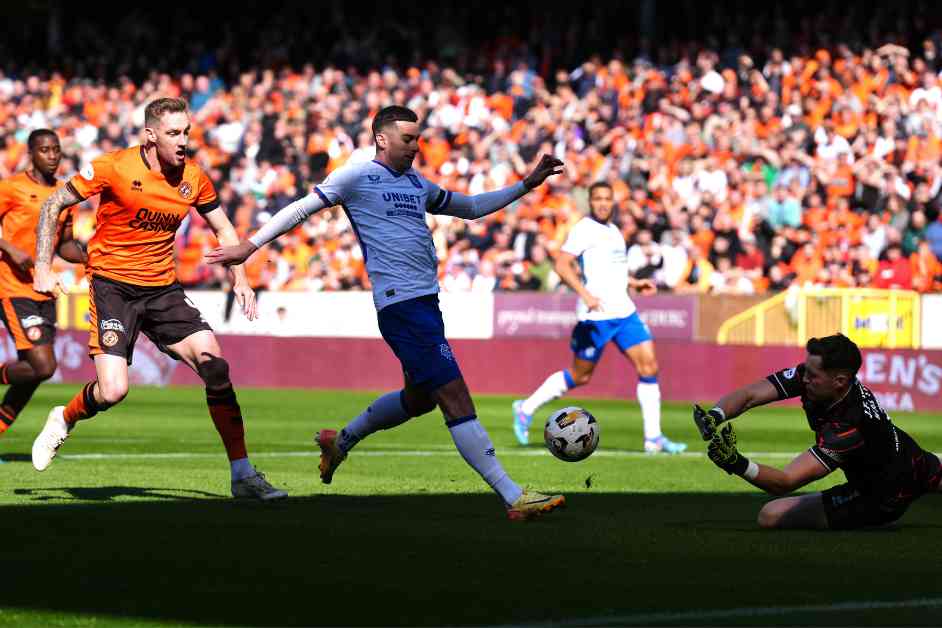Dundee United’s Defensive Strategy Against Rangers: Analysis and Improvement
Dundee United faced a tough challenge against Rangers as they suffered their first William Hill Premiership defeat since returning to the top flight. Manager Jim Goodwin expressed his disappointment with his team’s defensive lapse that led to Tom Lawrence’s winning goal. Goodwin acknowledged the need for a more aggressive approach in defense, highlighting the importance of tactical adjustments to counter strong opposition like Rangers.
Tactical Adjustments and Defensive Resilience
Goodwin emphasized the significance of adapting their formation to counter Rangers’ attacking threat. By switching from a 3-4-3 formation to a back four, Dundee United aimed to bolster their defensive solidity and combat the creativity of players like Lawrence. The tactical shift allowed them to regroup and stabilize their defense, preventing further incursions into their penalty box.
The importance of a cynical foul was also highlighted by Goodwin, who lamented his players’ failure to disrupt Lawrence’s progress before he scored. In high-stakes matches against top teams like Rangers, the ability to disrupt the opponent’s rhythm through strategic fouls can be crucial in preventing dangerous situations. Goodwin’s emphasis on tactical fouling as a defensive strategy underlines the team’s commitment to adapt and evolve their approach to match situations.
Resilience in the Face of Adversity
Despite the early setback, Dundee United showed resilience and determination in their efforts to claw back into the game. Goodwin praised his players for their fighting spirit and the adjustments made during the match to address the initial defensive vulnerabilities. The team’s ability to bounce back and stay competitive against a formidable opponent like Rangers reflects their character and determination to improve and learn from setbacks.
Goodwin acknowledged the need for a more proactive defensive approach, especially in crucial moments where a well-timed foul could have prevented conceding a goal. The manager’s focus on tactical awareness and discipline underscores the team’s commitment to enhancing their defensive strategy and minimizing errors that can prove costly against top-tier opposition.
Looking Ahead: Lessons Learned and Future Challenges
As Dundee United reflect on their defeat to Rangers, they are already looking ahead to their upcoming fixtures, including a crucial cup tie against Motherwell. Goodwin emphasized the importance of learning from the loss and using it as motivation to improve and perform better in the next game. The manager’s pragmatic approach to analyzing the team’s performance and identifying areas for improvement highlights his commitment to continuous development and growth.
The defeat against Rangers serves as a valuable learning experience for Dundee United, showcasing the challenges they face in competing at the highest level. Goodwin’s focus on tactical adjustments and defensive resilience signals the team’s determination to evolve and adapt to meet the demands of top-flight football. As they prepare for future challenges, Dundee United will draw on the lessons learned from their encounter with Rangers to strengthen their defensive strategy and enhance their overall performance on the pitch.
In conclusion, Dundee United’s defensive strategy against Rangers offers valuable insights into the team’s approach to facing top-tier opposition. By emphasizing the importance of tactical adjustments, defensive resilience, and tactical fouling, manager Jim Goodwin is leading his team towards a more robust and proactive defensive mindset. As they continue to evolve and improve, Dundee United will look to apply these lessons in future matches to enhance their defensive solidity and competitiveness in the Premiership.















